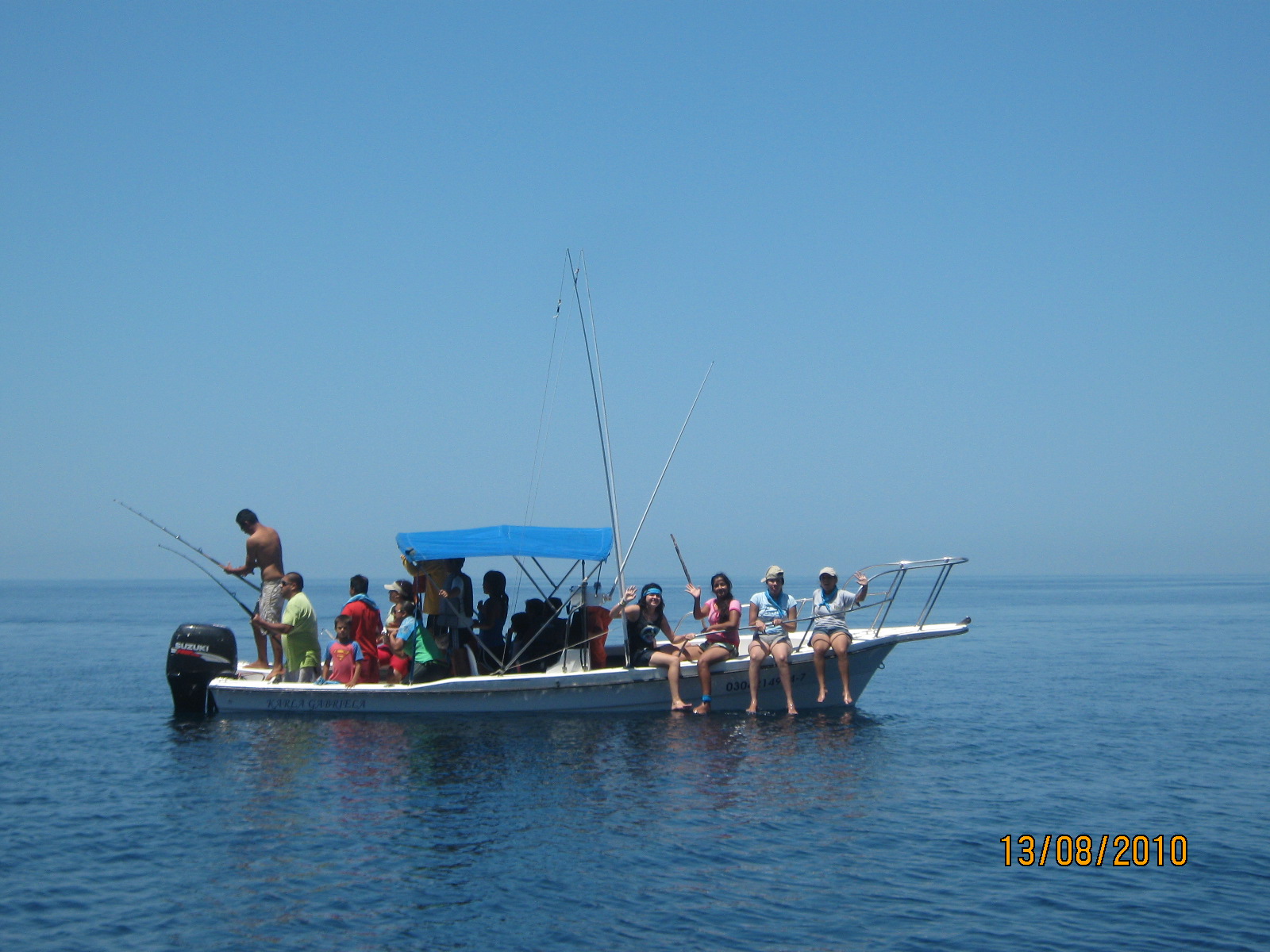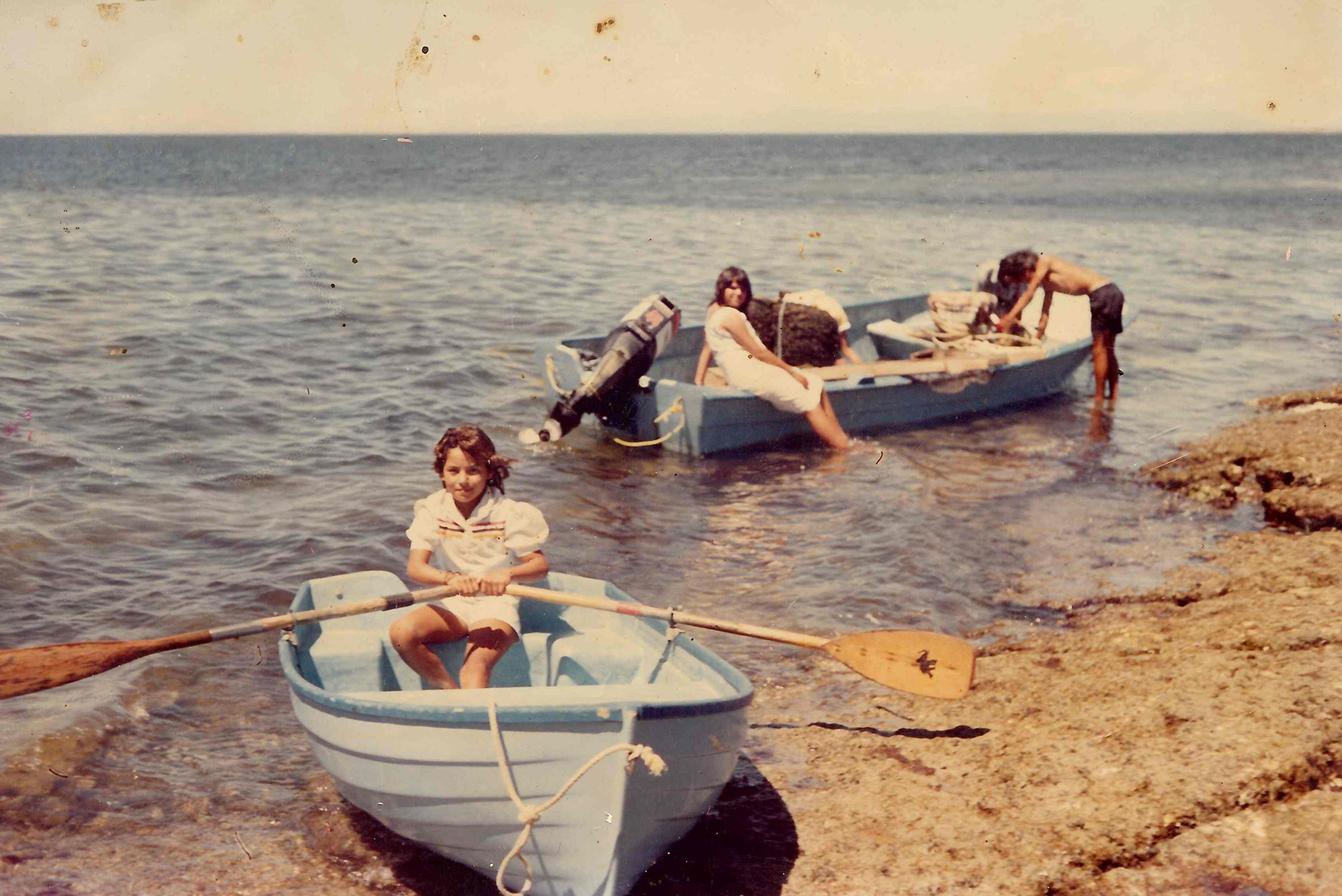A Manglito Fisherman’s Fight with Need Versus Vision
by Nathan Senge
It is the middle of the day and I am tired. The sun hangs limpidly above in the mid-summer burn of El Piojo and the wind has stalled.
I am ready for a break. I am ready to put my feet up and have a jugo de piña or something like that. I am ready for anything but another interview. But then Christian Liñan-Rivera, my liaison with the fishers, approaches me.
“Ok; let’s talk to Herubey!”
“I’m tired—can we wait an hour—“
“No! You’ve got to talk to him now. You’ve got to hear his story. And he’s here.”
Just then a short, portly man walks onto the stage-like patio of NOS’s outer meeting area, and he is deeply browned. His hair is sweaty and matted down, and his smile has a fall of fatigue. He approaches slowly, languidly, and looks at me with onyxed eyes.
“Herubey,” Christian says, “Nathan Senge.”
Herubey nods. He offers a hand. I take it and it is like a sponge. Almost webbed. Laid over with callouses. Hemingway always said you could tell a fisherman by his eyes and his hands. Shaking hands with Herubey was like dipping my hand in the Ensenada and letting the water run over it.
“Mucho gusto,” I say, feeling outclassed.
Herubey nods again and sits down. Christian presents the introductions, and details what we’ve been doing, that we’ve been interviewing fishermen from around the Manglito on the successes and challenges they’ve faced in restoring the bay. After he has finished, Herubey nods a third and final time, and begins to speak.
“Guillermo and Hubert Mendéz,” he says, “two brothers who are among the most respected fishermen in the Manglito, were the ones who first became involved with NOS [Noroeste Sustenable]. They told me I should come and I said no, I don’t think so. I had been doing my own thing, fishing on my own, but they insisted that I get there so one day I said, okay, I’m going to go there.
They invited me to be on the surveillance team, to protect the clams and scallops in the bay from being fished illegally. When I first got involved in the surveillance, I did it by walking the shoreline or by using my bike.
I love biking, and I got involved in learning about many projects going on with the community, in doing little chores like helping paint the fences and things like that. I was invited to do the census, to see how many Callo de Hacha clams there were, and I started surveilling by using a panga boat at night and during the early mornings.
I started building trust with NOS and my friends at the beach.”
Herubey pauses and leans back in his chair. A roll of wind lands and throws his hair forward, and he wipes it back from his eyes.
“Then it happened, this situation I am willing to share with you. My mother had had health issues and I needed money because I was only working the surveys at the time. I needed the money, you see. So I decided to harvest some of the Callo de Hachas. Illegally.”
Herubey looks over his shoulders to see if anyone is listening in.
“And I was caught. The community of fishermen involved in the agreement said ‘okay, we understand, it’s not a big deal even though you knew the rules and you can’t do that.’ Their trust came back quickly.
The first time this happened, members of the new OPRE fishing collective sent the fisheries inspector, as they are all friends with him, and they basically just told me not to do it again and that there wouldn’t be any real punishment.
But then I did it a second time. I did this because I didn’t feel like my voice was being heard in OPRE, that they weren’t paying attention to what I was saying. They didn’t realize how bad my situation was.”
Herubey laughs.

“It’s funny—telling this like it all happened ages ago,” he says. “It really wasn’t that long ago! Anyways, so this time they sent the fisheries inspector again, but this time they did impose a punishment that said I was out for three months. Three months is a lifetime when you need money. All of the fishermen were very upset with me; they were sad I had done this a second time. They were upset because they said they all had serious problems too but were committed to making this new path forward work. They were struggling, too.
So I worked for a month on no salary cleaning the beach area. It was humiliating. They worked me like a mule.
When I was working the beach for those thirty days of cleaning, from 7 a.m. to 2 p.m. every day, one of my friends told me I should collect signatures and write a letter to OPRE saying that this won’t happen again. So I collected signatures from 65 fishermen involved in the project and wrote that I was going to start doing things right.
By the end of that month, the board of OPRE basically said, ‘we appreciate the work you have done, but we are going to stick to the original punishment, so you still have two more months of no salary.’
I tried to look for other jobs but nothing came, so I was unemployed for those three months. It was really, really hard.”
Herubey takes a long drink of water. He swishes the ice around in the glass and sets the glass down.
“When the two months were up, I went back on the surveillance team. This all made me realize how important this project is, and that the Callo de Hachas were for the whole community and for the next generation of sons and daughters of all the fishing families.”
Heurbey looks over at Malu Tamayo Aguilar, a marine biologist sitting at the next table, and says, “I’ve been doing good, right?” She nods and smiles and goes back to her work.
“I’m glad I’ve regained the trust of everyone,” Herubey resumes, “and I really do just want to move forward, but I still sometimes have trouble with my father and mother’s situation. But I’m trying my best to do things right—it’s a beautiful treasure, what’s out there on the water. I realized, the second time I harvested, how alone I felt because I had not been listening to the others. Now I realize we all have a voice, and we’re united in moving forward into the next step of the project. I and my co-workers really believe this restoration project can succeed, long-term, and we want that to happen. I’m really glad now that I have the trust of so many people, and that they all have my back. I understand now that sometimes they can’t help me, but that’s okay because they have helped me before, and they will help me again.”
Herubey looks tired—he seems to be folding into his chair as the narrative goes on—and we take a break to discuss the unusually hot weather and the mezcal we’re going to try that night at the mezcaleria downtown. I had been told we had to try them in order, from lightest to darkest, mildest to most herbal and outrageous, and to have a sip of beer in-between each one, and Herubey agrees with this approach.
“Do not drink them fast,” he says to me and shakes a finger, “or you will wake up with hell in your head.”
Herubey laughs and says he wants to say a bit more about his current role in the OPRE community. He says he is proud about his new role, and wants to make sure I get this down.
“Since then,” he says, “I’ve been doing a lot of surveying. Once I caught a guy from another community looking at the Callos—I only knew him from sight. I told him you can’t take Callo de Hachas from here because we’re doing the survey. Maybe if you’re going through a tough time you can go to OPRE and they can help you out with some food or something. Because you don’t want to be caught fishing illegally here. I’m not sure if he ever went to OPRE or not; I just told him to go.
I’m currently helping a lot with the invasive species, the tunicate fungus, which has affected about a third of the Callo de Hachas. And during the survey I’ve reported at least three to four cases of people fishing illegally. Especially in low tide, a lot of families have been trying to steal the Callos, and I tell them you can’t do this here without a permit, but sometimes they can get very aggressive. So I say, if you get aggressive, I’ll call the authorities.

Right now it’s been pretty quiet with these incidents. Sometimes, when it happens, and a person gets aggressive, a bunch of fishermen come from the beachside offices and confront the person, and if he or she gets aggressive, they’ll call the authorities. But there hasn’t been any of that in a long time. Right now [March of 2017], the big worry is that Mexican spring break is coming soon and a lot of people will visit the beaches and we won’t know for sure if people are having a good time or trying to steal the Callo de Hachas. It will be hard to tell because there will be so many people. Okay,” he says suddenly and springs up, “that’s it for now—I’m going to go take a shower!”
We shake hands and Herubey walks off, a slight slink in his gait as he shakes out his shirt, the back of it all stained down with sweat.
“What did I tell you?” Christian says. “Hell of a story, right?”
“Yeah,” I say, “but how can you support more fishermen while they do the surveillance? It’s clear that’s how you bring the community together.”
“That’s the big problem. It’s been one of our problems all along, and it’s getting worse now that a lot of the philanthropists are pulling out. They expect us to have investors by now, with all the success we’ve had in getting back some of the Callos. But a lot of the investors are sharks.”
“So how many more are there like Herubey?” I ask. “Who are on the fence because they can’t make a living doing this?”
“Hundreds,” Christian says. “Maybe thousands. And we can’t accommodate them. Not without more funding. It’s always the end of the tale. More funding.”
Nathan Senge is a Contributing Writer for the Academy for Systems Change. He holds a summa cum laude B.A. from Dartmouth College in Chemistry and Physics, and a M.A. in Journalism and Media Studies from the University of Colorado at Boulder.
Nathan Senge is a Contributing Writer at the Academy for Systems Change. He holds a M.A. in Journalism and Media Studies from the University of Colorado at Boulder and a summa cum laude B.A. in Chemistry and Physics from Dartmouth College.
